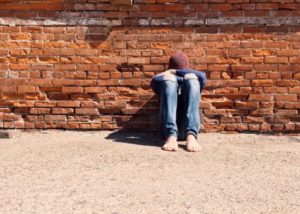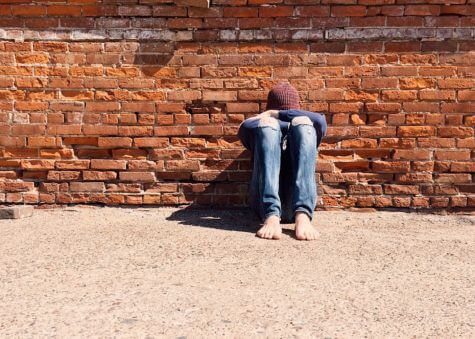BELMONT, Ma. — Being the victim of bullying may mean the onset of restless nights, a new study finds.
Researchers at McLean Hospital, a Massachusetts-based institution affiliated with Harvard, set up an experiment using mice to explore how the physical and emotional stressors associated with being picked on affect sleep.

During their repeated experiment, a young and small mouse was placed into the cage of a mouse that was substantially larger, older, and more aggressive. Upon the smaller mouse’s entry, the bigger mouse would typically guard its territory, in part by acting aggressively and emitting warning calls.
The interaction would usually conclude with the larger mouse pinning its counterpart to the floor or a wall of the cage, which was a display of dominance on its part.
Subsequently, the two mice were physically separated, but could still see, smell, and hear one another, giving the smaller mouse little relief from living under fear. Each small mouse was subjected again to a similar environment over the course of ten days, with a new aggressor mouse introduced on a daily basis.
To collect data on the vital signs of the smaller mice (i.e., their exercise, heart rates, and sleeping patterns) over the course of the study, the researchers outfitted them with neurotransmitters.
Bullied mice were found to have experienced dramatic shifts in their sleep patterns, particularly when it came to their ability to maintain a sleep phase called “paradoxical sleep,” which is akin to REM sleep for humans.
Other health markers, such as fluctuating body temperature, also suggested that the smaller mice had suffered from symptoms similar to depression.
Interestingly, “these effects were reduced, however, in terms of both intensity and duration, if the mice had been treated with a kappa-opioid receptor antagonist, a drug that blocks the activity of one of the brain’s own opioid systems,” says Bill Carlezon, the study’s lead researcher, in a news release.
Carlezon explains that his research not only demonstrates how traumatic experiences shape impressionable minds over long periods, but that there may be possible solutions to reduce the pain associated with such incidents, whatever form they may take.
“If we can knock out stress with new treatments, we might be able to prevent some forms of mental illness,” he says.
The study’s findings were published in The Journal of Neuroscience.

Publicly whipping bullies will reassure victims and potential victims that they will be protected.
Bullying is a good reason for video and audio monitoring in schools and other areas.